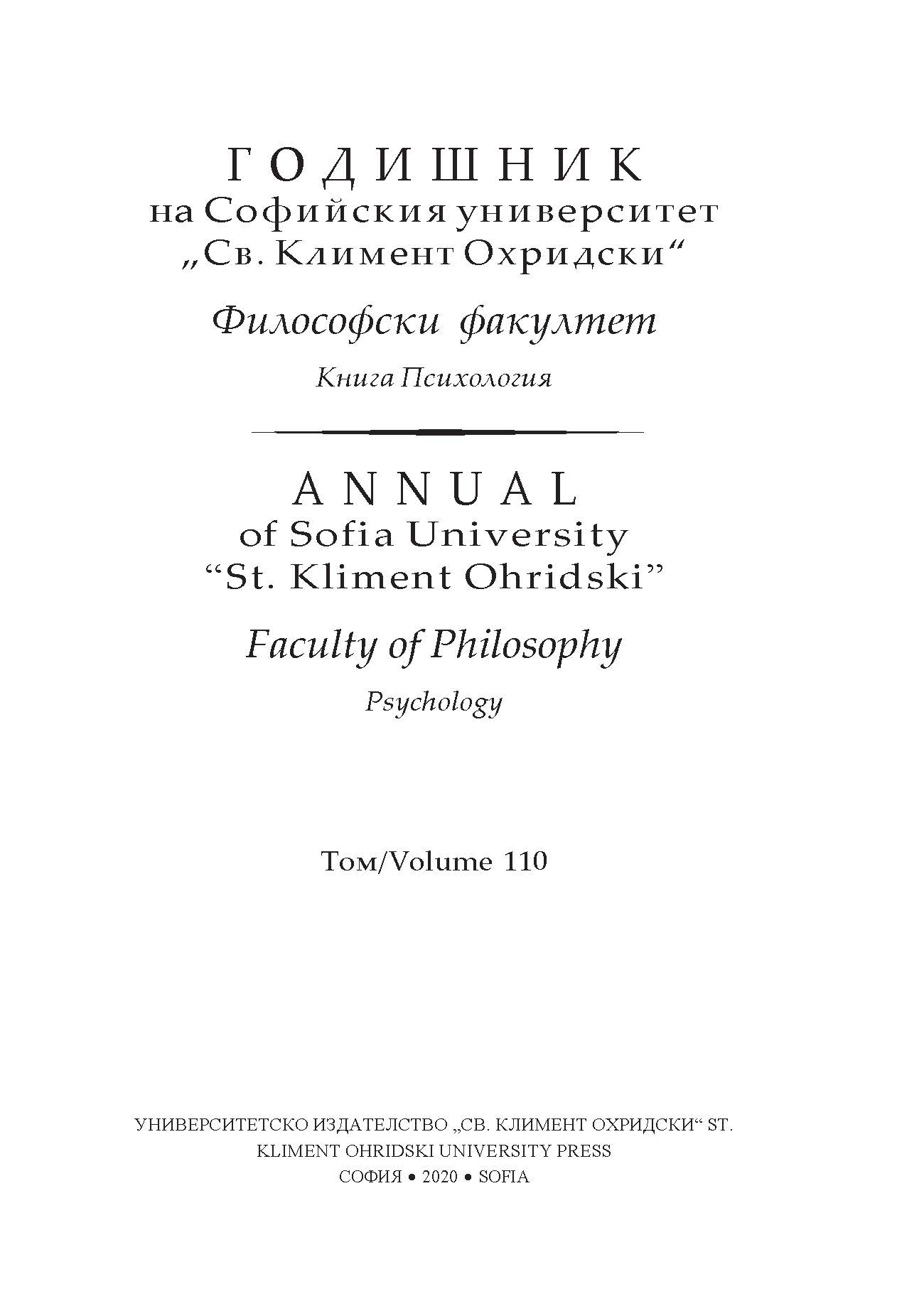Перфекционизъм и работохолизъм: многодименсионален характер и взаимосвързаност
Perfectionism and workaholism – multidimensional nature and interrelatedness
Author(s): Albena Krumova, Plama HristovaSubject(s): Social Sciences, Psychology, Individual Psychology, Organizational Psychology
Published by: Софийски университет »Св. Климент Охридски«
Keywords: perfectionism; workaholism; multidimensional; interconnectedness; satisfaction; addiction
Summary/Abstract: The authors offer a new perspective on the relationship between perfectionism and workaholism. Based on existing research, an analysis has been conducted on the essence and specificities of both phenomena. Perfectionism is a concept which describes the people’s desire to be perfect and to exceed in their performance. It is not a unidimensional psychological construct and is not connected only to the personality structure, as it is socially mediated and manifests itself with respect to and in relation to others, especially the “significant others”. This phenomenon is multidimensional by nature and it is relevant not only to the initiative and prosperity of the individual, but it can be linked to a range of mental disorders and physical illnesses. Workaholism has a huge impact on individuals' achievements and success. This phenomenon, too, has both a positive and a negative side, and current research shows that even the negative consequences at the personal and organizational level are far more numerous than the positive ones. This paper draws a parallel between the two phenomena, discusses the relationship between them and clarifies their positive and negative impact on individual performance and group effectiveness.
Journal: Годишник на Софийския университет „Св. Климент Охридски“. Философски факултет. Психология
- Issue Year: 110/2020
- Issue No: 1
- Page Range: 48-72
- Page Count: 25
- Language: Bulgarian

